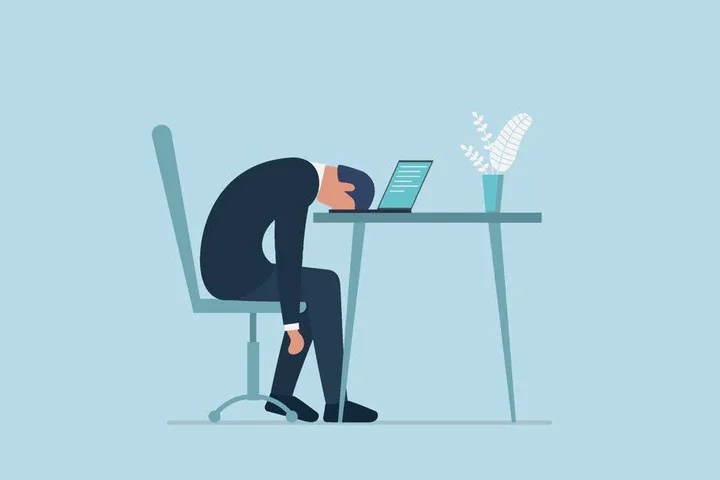
Losing your job can feel like a storm cloud hanging over your life. But fear not, for in every challenge lies an opportunity. Your thoughts may be in disarray, whether it's an unexpected layoff or a voluntary decision. It's crucial to have a well-thought-out plan or, at the very least, know where to discover one (hint: you're reading it right now) if you find yourself in this situation. In this article, we'll explore ten practical steps to navigate the aftermath of a job loss. Let's turn the page and start the next chapter in your life with resilience and optimism.
1. Figure out what's in it for you
When the storm hits, be prepared to navigate. Assess your severance package, if any, and understand the ins and outs. Negotiate if possible, and don't forget to clarify how long your insurance coverage lasts.
2. Take a deep breath
Losing a job is emotionally challenging. Give yourself the space to process and regroup. Reflect on your role, identifying aspects you enjoyed and didn't. Understanding the reasons behind the job loss is essential for planning your next steps. Treat your job search as your new occupation, but remember to prioritize self-care, incorporating activities like fresh air, exercise, and quality time with loved ones.
3. Stop spending money
Even if leaving the job was in your plans, stop unnecessary spending until your strategy is clear. Minimizing expenses is vital with no current income, even with a severance. Trim down every non-essential area. Your emergency fund should sustain only basic needs, not the lifestyle from your employed days.
4. Pull out your contacts
In the business world, connections are gold. Reach out to your network; you never know which contact could open the door to a new opportunity. Networking is not just a job search strategy; it's a lifeline.
5. Polish your resume
Regularly updating your resume is a wise habit. Ensure it's comprehensive and tailored to the specific company when applying for new positions. A generic resume is easily recognizable; take the time to align your skills and experiences with the prospective employer's needs.
6. Learn from the experience
If you weren't a top performer, view this experience as a chance to improve. Seek feedback on your layoff, using it as a tool for personal growth. Learning from every situation, even challenging ones, contributes to your development. Your employer should appreciate your desire to understand and grow from the experience.
7. Look into unemployment
Pride aside, explore unemployment benefits if needed. It's not a handout; it's a safety net designed to help you stay afloat. Assess your eligibility and make an informed decision based on your circumstances.
8. Consider taking time off
If your emergency fund is robust, consider this period as an opportunity to spend quality time with family. While an extravagant vacation might not be feasible, a simple break can rejuvenate. If taking time off stresses you, prioritize securing a new job first, allowing for a brief vacation before starting your next role.
9. Tell them thanks for employing you
Maintain professionalism by expressing gratitude to your former employer. Despite any emotional turmoil, sending a thank-you letter to your boss reflects positively on you. It also ensures you can still use them as a reliable reference in the future.
10. Don't rule out any job
Flexibility is key in turbulent times. If your emergency fund provides a safety net, take the time to find the right job. But if necessities are pressing, be open to any opportunity. Pride should never hinder providing for your family.
Losing your job doesn't have to be a chapter of despair; it's a chance to script a new narrative. Choose happiness, even in the face of adversity. Life's next chapter awaits-embrace it with courage and enthusiasm.
Conclusion
Job loss can be a challenging chapter, but it's also an opportunity for growth and redirection. Navigating the aftermath requires a strategic approach, including assessing severance packages, emotional recovery, financial prudence, and leveraging professional networks. By following practical steps and maintaining flexibility, job loss recovery can lead to a positive career transition. Remember, every challenge is a stepping stone to something better.
FAQs
Can I negotiate my severance package?
Yes, negotiation is often possible. Highlight your contributions and discuss the terms with your employer.
How long should I take before starting a new job search?
Take the time you need for self-reflection and self-care but balance it with a proactive job search to stay competitive.
Is unemployment assistance a handout?
No, it's a safety net designed to support individuals in times of financial hardship.
Should I take any job available or wait for the right one?
Balance is key. If your financial situation allows, take the time to find a job that aligns with your goals.
How do I approach my former employer for a reference?
Send a thank-you letter expressing gratitude for the opportunity and politely request a reference.















Comments